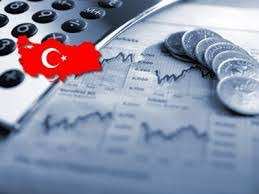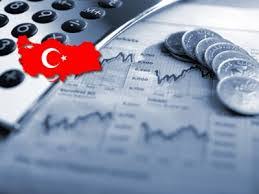
An economic crisis could set in Turkey by its collapsing currency that the government there is desperately trying to prevent.
A move by the investors worldwide to move their investments from the emerging markets into the United States has resulted in the lira loosing as much as 20 per cent against the dollar this year.
However, the drop was more prominent since this month after the Turkish President Recep Tayyip Erdogan suggested that he wanted to control the process of interest rate setting which according to him is "the mother and father of all evil."
This spooked investors even more as they moved out of the Turkish market which sent the currency to a record low of about 20 US cents. This made the Turkish central bank to declare an emergency rate hike at 16.5% from 13.5% as a measure to control the falling currency.
According to economists, there could be more pain for the economy.
"We think the ... emergency rate hike was the bare minimum," said Oxford Economics in a research note on Thursday. The note further added that a further rate hike is likely in early June when the rate could reach 19.5%.
While the 11% inflation rate is hurting the economy, the dropping currency has further added to the woes. The rising prices of commodities has forced people to start to spend less.
Commodities like cars, clothing and fridges are imported into the country every year which are worth billions of dollars.
The aim of the central bank in hiking the rate is to achieve a "significant improvement" in the outlook for inflation, it said.
The threat by Erdogan to interfere in the monetary policy was also somewhat retracted by him because he is seeking a reelection on June 24.
"Turkey is a country that complies with all free market rules and institutions," he said in an address on Wednesday that was posted online.
However, the moves did not satisfy the experts who are of the view that too little has been done too late and the economy has already paid a price.
"[Erdogan's previous] comments are still fresh in investors' minds and political leaders will need to ease concerns that monetary policy will be determined by politicians," said Per Hammarlund, chief emerging market strategist at Swedish bank SEB.
The economic growth of the country could be impacted by the inflation rates, fear experts. There are also worries that investors can drain the money they invested in the country quite fast.
The current deficit of Turkey is more than 5% of GDP. This means that the country has to import more and has to borrow foreign finance to account for the difference.
The solution is short term debts for running the economy but that also means that if investors go out of the market, there can be a sudden shortage in the supply of funds.
"Turkey becomes very vulnerable since most of the funding is done on a less than one-year basis," said Hammarlund. "Investors will be expecting additional measures to be taken to reduce vulnerabilities in the Turkish economy."
(Source:www.MoneyCNN.com)
A move by the investors worldwide to move their investments from the emerging markets into the United States has resulted in the lira loosing as much as 20 per cent against the dollar this year.
However, the drop was more prominent since this month after the Turkish President Recep Tayyip Erdogan suggested that he wanted to control the process of interest rate setting which according to him is "the mother and father of all evil."
This spooked investors even more as they moved out of the Turkish market which sent the currency to a record low of about 20 US cents. This made the Turkish central bank to declare an emergency rate hike at 16.5% from 13.5% as a measure to control the falling currency.
According to economists, there could be more pain for the economy.
"We think the ... emergency rate hike was the bare minimum," said Oxford Economics in a research note on Thursday. The note further added that a further rate hike is likely in early June when the rate could reach 19.5%.
While the 11% inflation rate is hurting the economy, the dropping currency has further added to the woes. The rising prices of commodities has forced people to start to spend less.
Commodities like cars, clothing and fridges are imported into the country every year which are worth billions of dollars.
The aim of the central bank in hiking the rate is to achieve a "significant improvement" in the outlook for inflation, it said.
The threat by Erdogan to interfere in the monetary policy was also somewhat retracted by him because he is seeking a reelection on June 24.
"Turkey is a country that complies with all free market rules and institutions," he said in an address on Wednesday that was posted online.
However, the moves did not satisfy the experts who are of the view that too little has been done too late and the economy has already paid a price.
"[Erdogan's previous] comments are still fresh in investors' minds and political leaders will need to ease concerns that monetary policy will be determined by politicians," said Per Hammarlund, chief emerging market strategist at Swedish bank SEB.
The economic growth of the country could be impacted by the inflation rates, fear experts. There are also worries that investors can drain the money they invested in the country quite fast.
The current deficit of Turkey is more than 5% of GDP. This means that the country has to import more and has to borrow foreign finance to account for the difference.
The solution is short term debts for running the economy but that also means that if investors go out of the market, there can be a sudden shortage in the supply of funds.
"Turkey becomes very vulnerable since most of the funding is done on a less than one-year basis," said Hammarlund. "Investors will be expecting additional measures to be taken to reduce vulnerabilities in the Turkish economy."
(Source:www.MoneyCNN.com)





